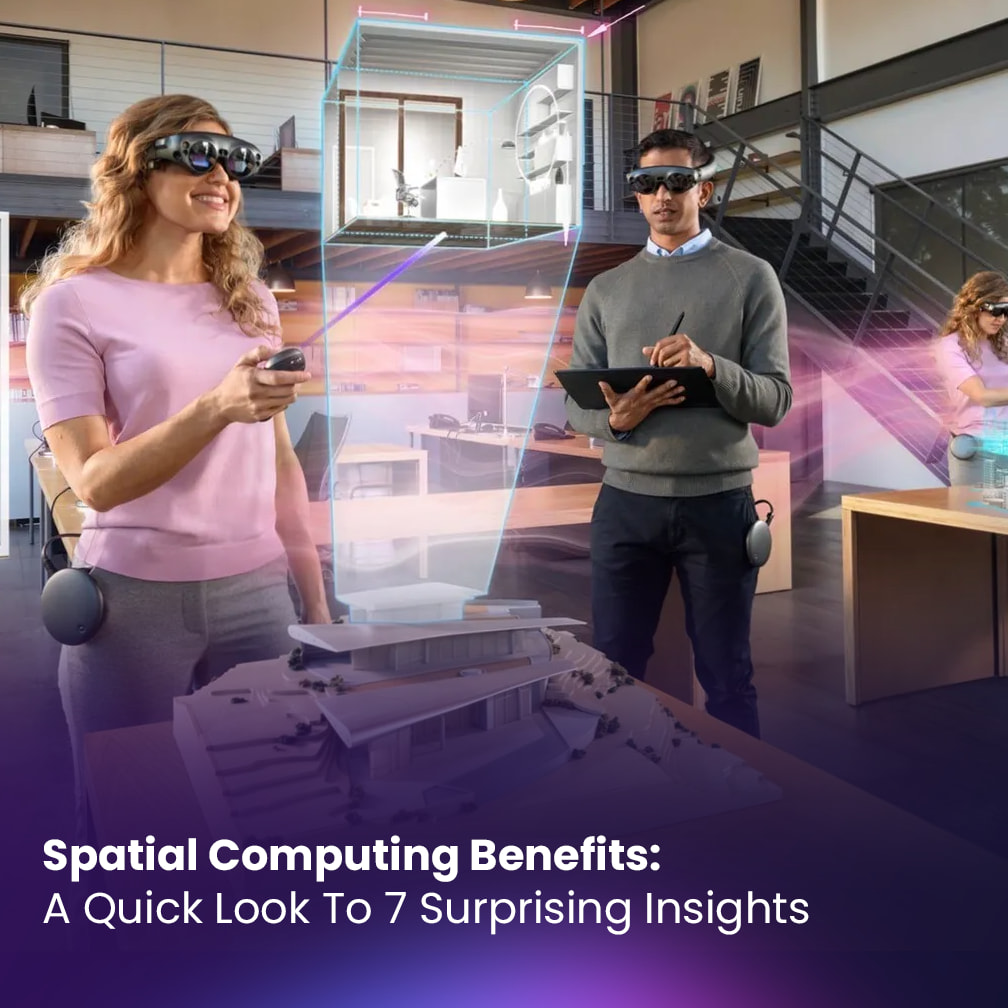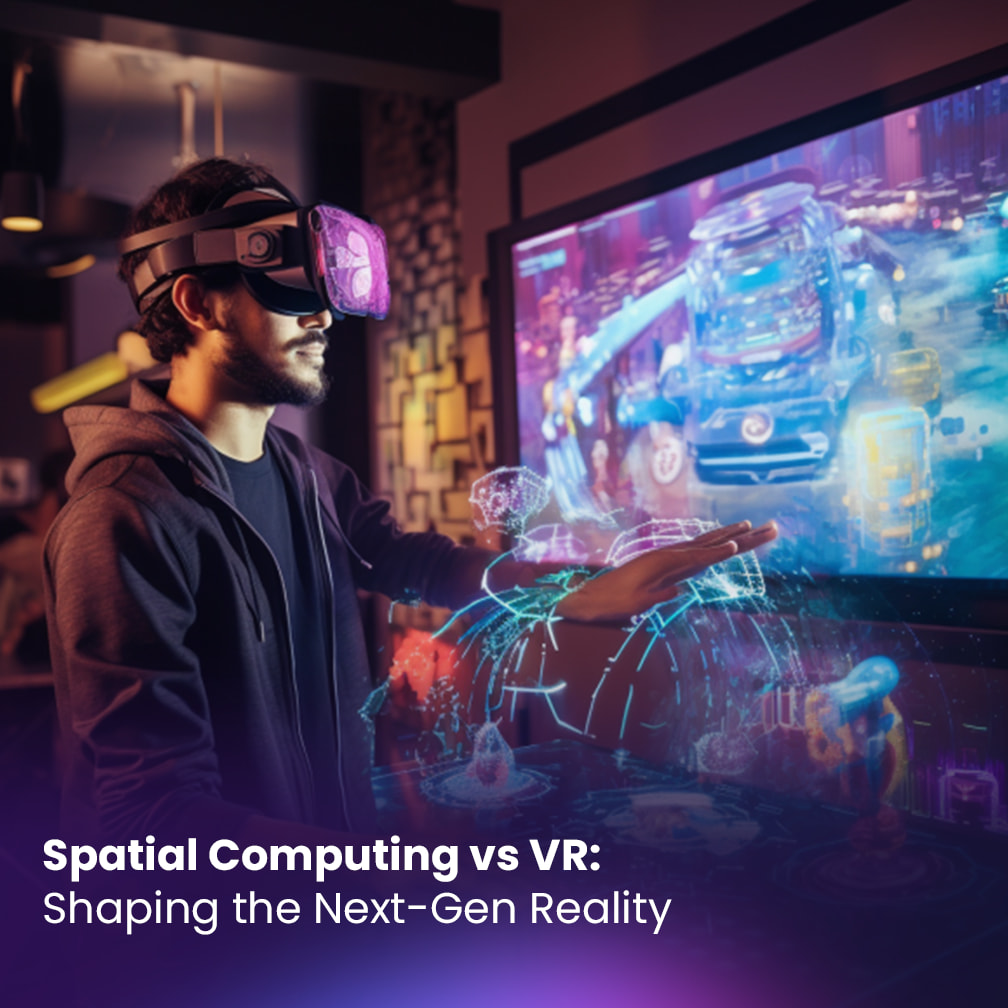Spatial Computing Marketing Agency: How to Choose the Perfect Fit for Your Brand

Estimated reading time: 8 minutes
In this guide, we’ll explore the key factors to consider and the top strategies to adopt when choosing a Spatial Computing Marketing Agency that aligns seamlessly with your brand’s vision and goals. Let’s embark on this exciting journey together and unlock the endless possibilities of spatial computing marketing for your brand.
Table of contents
- What Exactly is Spatial Computing Marketing?
- Key Benefits of Spatial Computing Marketing
- Spatial Computing Marketing Tactics to Adopt
- Critical Things to Consider
- Their Expertise and Experience
- Technical Capabilities
- Creative Vision
- User Focus
- Transparency and Trust
- Measuring Success
- Are You Ready to Explore Spatial Computing Marketing?
- Questions to Ask Prospective Spatial Computing Marketing Agencies
- Red Flags to Watch Out For
- Key Takeaways on Selecting Your Spatial Computing Agency
- Managing Your Spatial Computing Marketing Agency for Ongoing Success
- Conclusion: Let Your Spatial Computing Marketing Agency Unlock New Possibilities
What Exactly is Spatial Computing Marketing?
Spatial computing refers to the integration of digital information with the physical environment, creating immersive experiences through technologies like augmented reality (AR), virtual reality (VR), mixed reality (MR), spatial mapping, and spatial analytics.
In contrast to traditional marketing, which is limited to two-dimensional screens, spatial computing marketing offers interactive and three-dimensional experiences that engage users on a deeper level. It blends the digital and physical worlds, transforming how brands connect with their audiences.
Key Benefits of Spatial Computing Marketing
Here are some top reasons your business should embrace spatial computing marketing:
- Enhanced Immersion and Engagement – Spatial computing creates immersive experiences that captivate and engage users in ways that traditional marketing cannot.
- Personalized Interactions – By leveraging spatial analytics, brands can deliver personalized content and recommendations based on users’ real-time interactions and preferences.
- Augmented Product Experiences – AR and VR technologies allow brands to showcase products in a lifelike manner, enabling customers to visualize and experience them before making a purchase.
- Data-Driven Insights – Spatial analytics provide valuable data insights into user behavior, preferences, and engagement patterns, enabling brands to optimize their marketing strategies effectively.
- Differentiation and Innovation – Adopting spatial computing sets brands apart from competitors and demonstrates a commitment to innovation and cutting-edge technology.
- Improved Brand Loyalty – Immersive experiences create memorable brand interactions that foster long-term customer relationships and loyalty.
Spatial Computing Marketing Tactics to Adopt
To leverage spatial computing effectively in your marketing efforts, consider implementing the following tactics:
Create Immersive AR/VR Experiences
Develop AR and VR experiences that allow users to interact with your products or services in a virtual environment.
Utilize Spatial Mapping for Targeted Advertising
Use spatial mapping technologies to deliver targeted advertisements based on users’ physical locations and surroundings.
Implement Interactive Product Showcases
Showcase products or services in interactive AR/VR environments, enabling customers to explore features, customization options, and more.
Enable AR Try-On Experiences
For industries like fashion and cosmetics, offer AR try-on experiences that allow customers to virtually try products before purchasing.
Deploy Location-Based AR Campaigns
Launch location-based AR campaigns that encourage users to engage with your brand in specific physical locations, such as retail stores or events.
Critical Things to Consider
When choosing a spatial computing marketing agency, keep these critical factors in mind:
- Technical Expertise – Assess the agency’s proficiency in AR, VR, spatial mapping, and other spatial computing technologies.
- Creative Vision – Review the agency’s portfolio for innovative and creative spatial computing campaign ideas and executions.
- User Experience Focus – Ensure the agency prioritizes user experience and designs immersive interactions that resonate with your target audience.
- Data Privacy and Compliance – Verify that the agency adheres to data privacy regulations and best practices when collecting and using user data in spatial computing experiences.
- Measuring Success – Discuss how the agency measures the success of spatial computing campaigns, including key performance indicators (KPIs) and ROI metrics.
The key is to walk before you run. Test small campaigns first to gauge results before committing major budgets. A slow but steady approach helps you navigate the learning curve.
Their Expertise and Experience
When evaluating potential spatial computing marketing agencies, consider the following:
- Specialization in Spatial Computing – Confirm that the agency specializes in spatial computing marketing and has experience executing successful spatial computing campaigns.
- Case Studies and Results – Request case studies and examples of past spatial computing campaigns, including measurable results and impact on client objectives.
- Stay Updated – Inquire about how the agency stays updated on the latest spatial computing technologies, trends, and best practices.
Technical Capabilities
Assess the agency’s technical capabilities in spatial computing, including:
- Proficiency in AR/VR Development – Evaluate the agency’s expertise in developing immersive AR/VR experiences tailored to your brand and target audience.
- Spatial Mapping and Analytics – Determine if the agency has capabilities in spatial mapping, analytics, and data-driven insights to optimize spatial computing campaigns.
Creative Vision
Review the agency’s creative vision and approach to spatial computing marketing, including:
- Innovative Campaign Ideas – Look for agencies that propose innovative and engaging spatial computing campaign ideas that align with your brand’s objectives.
- Design Excellence – Evaluate the quality of the agency’s spatial computing designs and user interfaces to ensure a seamless and immersive experience for users.
User Focus
Ask how the agency identifies and engages your target audience through spatial computing, including:
- Community Building – Inquire about the agency’s approach to building communities and fostering user engagement within spatial computing environments.
- User Feedback and Optimization – Discuss how the agency gathers user feedback and optimizes spatial computing experiences over time to enhance user satisfaction and campaign performance.
Transparency and Trust
Evaluate the agency’s commitment to transparency, ethical practices, and client satisfaction, including:
- Company Values and Ethics – Understand the agency’s values, ethics, and approach to data privacy and compliance in spatial computing marketing.
- Client Reviews and Reputation – Seek client references and reviews to gauge the agency’s reputation, reliability, and track record of delivering successful spatial computing campaigns.
Measuring Success
Discuss how the agency measures the success of spatial computing campaigns and demonstrates ROI, including:
- Key Performance Indicators (KPIs) – Define relevant KPIs for spatial computing campaigns and ensure the agency tracks and reports on these metrics effectively.
- ROI Tracking – Inquire about the agency’s methods for tracking ROI and delivering measurable results that align with your business objectives.
Are You Ready to Explore Spatial Computing Marketing?
Spatial computing opens up exciting opportunities to revolutionize how brands connect with audiences in immersive and interactive ways. By partnering with a specialized spatial computing marketing agency, you can harness the power of AR, VR, and spatial analytics to create compelling brand experiences and drive business growth.
As you embark on this journey, remember to:
- Vet technical expertise, creative vision, and user focus when choosing an agency partner.
- Align strategic business goals, KPIs, and measurement frameworks for spatial computing campaigns.
- Foster collaboration and transparency with your agency partner to ensure ongoing success and innovation in spatial computing marketing.
The future of marketing is spatial – are you ready to lead the way?
Questions to Ask Prospective Spatial Computing Marketing Agencies
When evaluating potential spatial computing marketing agencies, consider asking these questions:
- What spatial computing technologies and platforms do you specialize in?
- Can you share case studies and results from past spatial computing campaigns?
- How do you stay updated on the latest spatial computing trends and technologies?
- How will you integrate spatial computing into our existing marketing strategy?
- What are your creative ideas for leveraging spatial computing to enhance our brand presence?
- How do you prioritize user experience and engagement in spatial computing campaigns?
- What measures do you take to ensure data privacy and compliance in spatial computing experiences?
- How do you track and measure success in spatial computing campaigns?
- Who will be our primary point of contact and how will communication be managed?
Red Flags to Watch Out For
Avoid agencies that demonstrate these warning signs:
- Lack of expertise or experience in spatial computing technologies and campaigns.
- Inability to provide relevant case studies, results, or client references for spatial computing projects.
- Poor communication or transparency regarding data privacy, compliance, and ethical practices in spatial computing marketing.
- Unclear strategies, KPIs, or measurement frameworks for spatial computing campaigns.
- High turnover rates or a lack of specialized talent in spatial computing within the agency.
- Key Takeaways on Selecting Your Spatial Computing Agency
Key Takeaways on Selecting Your Spatial Computing Agency
To recap choosing the right partner:
- Prioritize technical expertise, creative vision, and user focus when evaluating agencies.
- Define clear business goals, KPIs, and expectations for spatial computing campaigns.
- Collaborate closely with your agency partner and foster a transparent, communicative relationship.
- Stay informed about the latest spatial computing trends, technologies, and best practices.
- By partnering with a knowledgeable and innovative spatial computing agency, you can unlock new possibilities for your brand and create immersive experiences that resonate with your audience.
The agency you choose can make or break your spatial computing success. Invest time upfront to find the ideal cultural and strategic fit.
Managing Your Spatial Computing Marketing Agency for Ongoing Success
Once you’ve selected a spatial computing marketing agency, here are tips for managing the relationship effectively:
Maintain Open Communication
Have regular check-ins to give feedback and adjust strategies.
Keep them looped in on related marketing initiatives for alignment.
Solicit ideas to improve performance.
Share audience insights and feedback.
Set Clear Expectations
Align on specific benchmark goals and timelines.
Define what success looks like upfront through agreed KPIs.
Put reporting cadences in place to track progress.
Build a Collaborative Partnership
Make them feel invested in your brand’s success.
Involve them in brainstorming beyond just execution.
Provide access to internal stakeholders for seamless collaboration.
Stay Educated
Have your team participate in the agency’s spatial computing training.
Ask for guidance on spatial computing compliance, risks and ethics.
Request their perspectives on spatial computing trends and innovations.
Be Flexible and Open-Minded
Don’t shut down ideas too quickly without testing.
Allow room for agile adjustments as you learn together.
Embrace creativity and unconventional thinking.
With strong management, your spatial computing agency relationship will continue driving impact and exceeding expectations. Treat them as trusted advisors and empower their expertise.
Conclusion: Let Your Spatial Computing Marketing Agency Unlock New Possibilities
Spatial computing marketing offers a transformative approach to engaging audiences and creating memorable brand experiences. By partnering with a specialized spatial computing agency, you can harness the full potential of AR, VR, and spatial analytics to differentiate your brand, drive customer engagement, and achieve business growth.
Investing time and effort in selecting the right agency partner, aligning strategic objectives, and fostering a collaborative relationship sets the stage for ongoing success and innovation in spatial computing marketing.
The future of marketing is spatial – are you ready to embrace it? With the right agency partner by your side, you can navigate the new frontier of spatial computing marketing and unlock new possibilities for your brand.








